Project News ·
FNQ Farmers take a new approach to improve Reef water quality
Far North Queensland sugarcane and banana farmers are maximising nitrogen use efficiency to reduce nutrients entering local waterways.
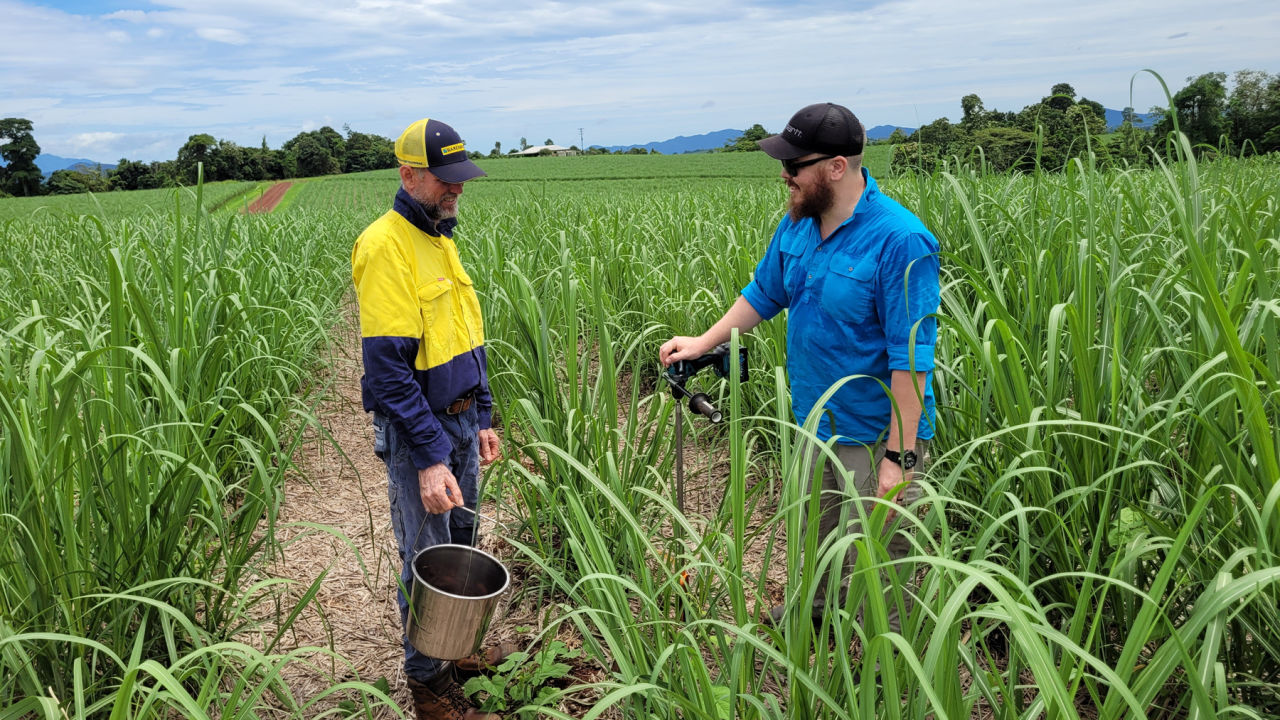
Over the past decade, sugarcane and banana farmers in the Tully and Johnstone Basins have made significant reductions in nitrogen inputs. In the first water quality project of its kind, the environmental focus has now shifted from reducing nitrogen rates to improving the ability of the crops to use the nutrients that are applied.
When plants are using applied fertiliser efficiently there is less chance of surplus being lost through runoff and entering local waterways. Factors such as weather, soil pH and disease can influence the ability of plants to effectively take up applied nutrients.
To maximise Nitrogen Use Efficiency (NUE), the Cassowary Coast Reef Smart Farming (CCRSF) project is providing farmers with one-on-one tailored agronomic advice, while identifying broader opportunities to improve NUE across the Tully and Johnstone catchments.
The CCRSF project is funded through a partnership between the Australian Government’s Reef Trust and the Great Barrier Reef Foundation and is managed locally by CANEGROWERS Innisfail. To date, 96 cane farms and 28 banana farms have received tailored nutrient management plans and soil and leaf testing.
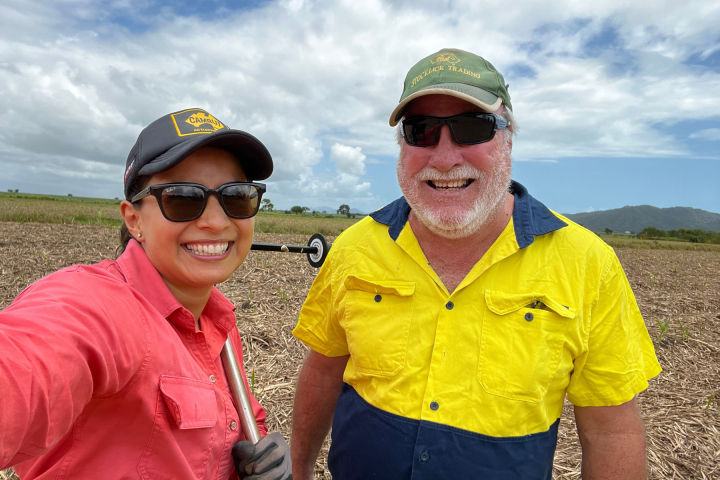
Extension Officer Maria Solis with grower Alan Colgrave. Credit: Cassowary Coast Reef Smart Farming
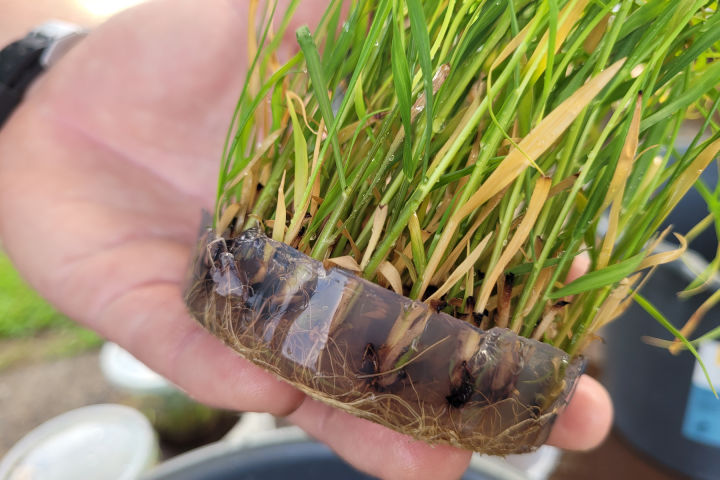
9,000 Pachymetra resistant tissue culture seedlings have been planted. Credit: Cassowary Coast Reef Smart Farming
Alan Colgrave farms sugarcane at New Harbourline, south of Innisfail. He said the project also improves productivity and profitability to ensure industry sustainability.
“Many growers have felt like they’ve lost their mojo over the past few years. We have been so focused on Reef regulations and have been trying our utmost to reduce our application of nitrogen, perhaps to the detriment of all-of-farm attention.
“This project is taking a side-step, aimed at restoring our productivity and in turn our mojo because a more productive farm also prevents surplus nitrogen running into our catchments. It is a win-win,” he said.
Since the CCRSF project started in early 2022, more than 50 kilograms of soil and 3,000 leaves have been tested to identify possible trends in how NUE can be improved.
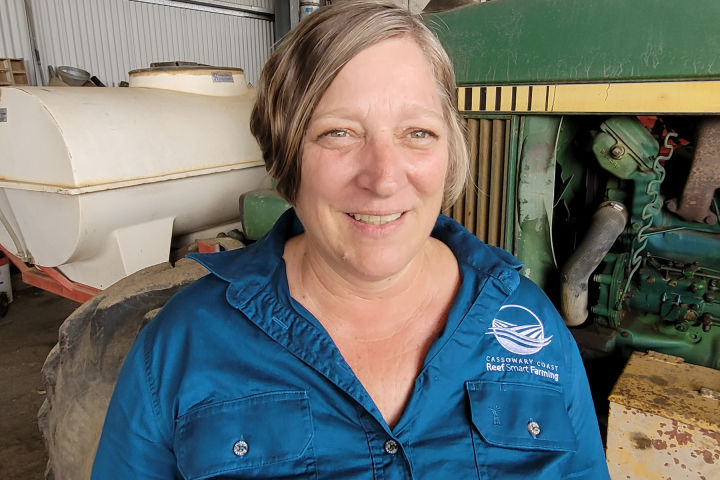
CCRSF Project Leader Debra Telford. Credit: Cassowary Coast Reef Smart Farming
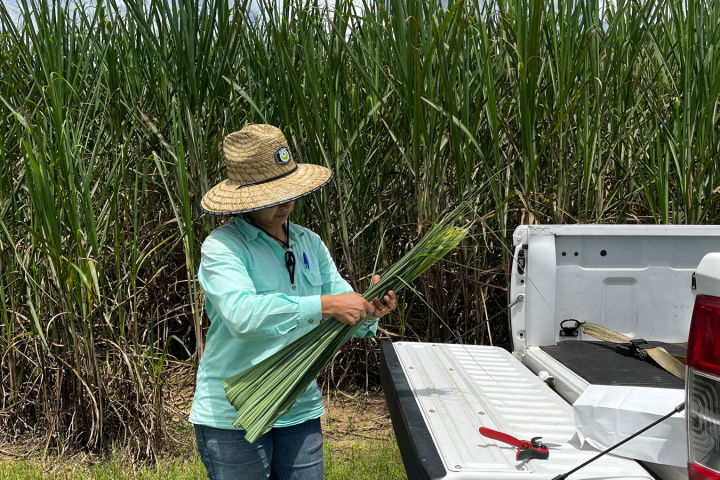
Extension Officer Maria Solis taking leaf samples. Credit: Cassowary Coast Reef Smart Farming
CCRSF Extension Officer Peter Becke said, “We are looking at the nutrients in the soil as well as the crop because we need to know what the plant has actually taken up. If we see any inconsistencies, we investigate to find out why that might be.”
Amongst the suite of analysis, soil testing has identified that the sugarcane disease Pachymetra is prevalent in the region. This soil-borne fungus, which is native only to Australia, attacks the roots that help absorb essential nutrients. This is one factor affecting NUE in the region.
CCRSF Project Leader Debra Telford said the solution is planting varieties that are resistant to Pachymetra. “Disease-resistant varieties are the newer varieties, so there hasn’t been an abundance of this plant material available to growers,” she said.
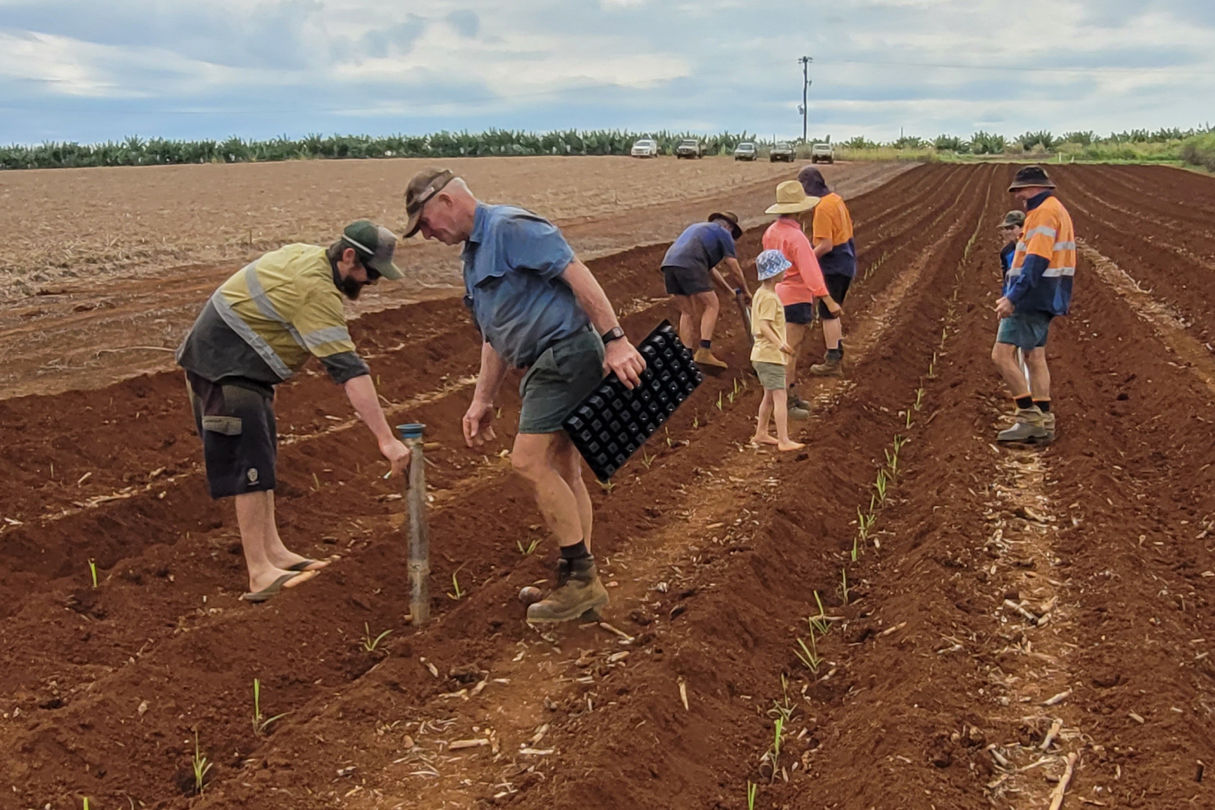
Farmers band together to plant tissue culture with manual planters. Credit: Cassowary Coast Reef Smart Farming
“To increase availability and uptake, we have planted 9,000 tissue culture seedlings, all of which are resistant to the pathogen. A year from now, seed from these plants will be distributed to growers throughout the region.”
“There are many factors that can affect NUE and a lot of these factors will be investigated over the remainder of the project.”
The CCRSF project is collaborating with local industry partners to improve NUE across the Tully and Johnstone catchments. The aim of the project is to stop over 61 tonnes per year of Dissolved Inorganic Nitrogen (DIN) leaving Far North Queensland farms and entering the Great Barrier Reef lagoon while improving productivity.
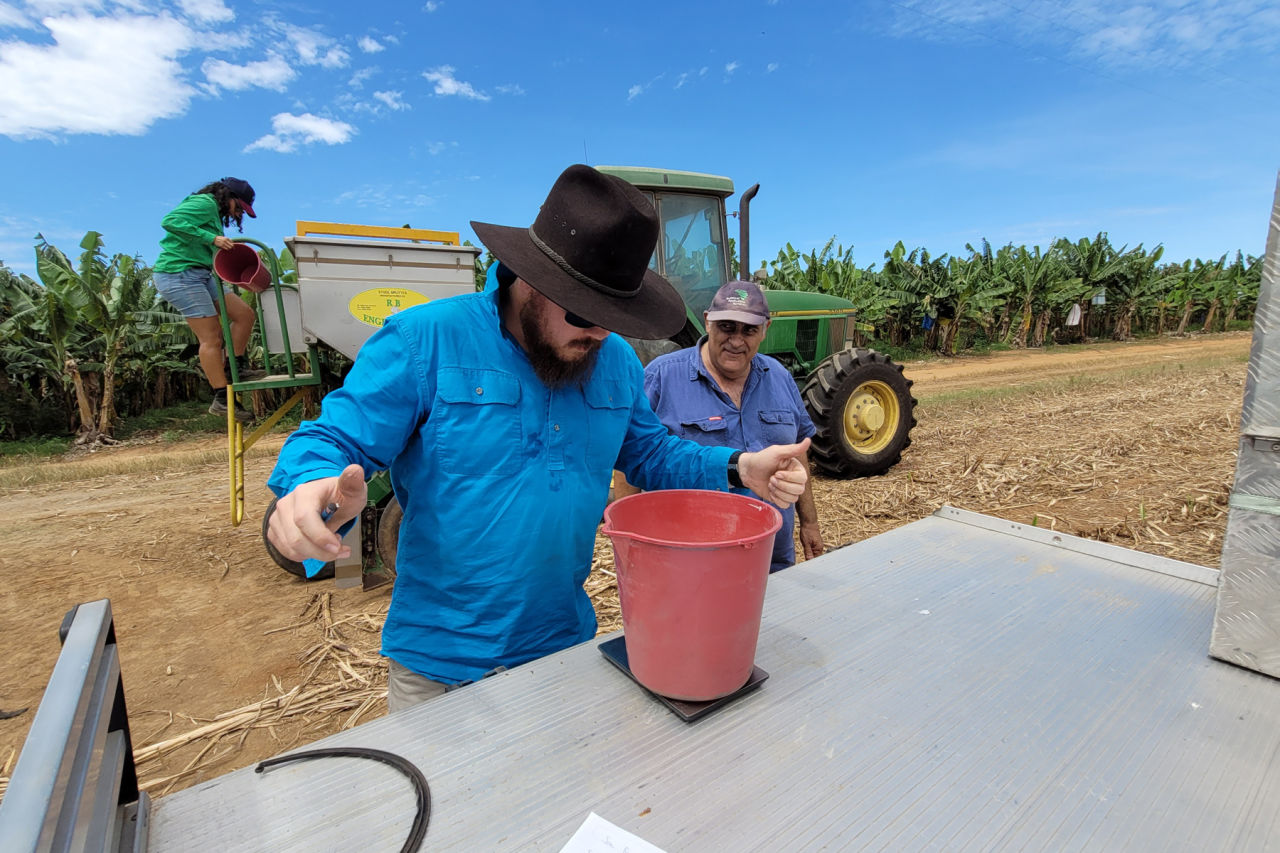
Extension Officers Peter Becke & Maria Solis calibrating a fertiliser bucket with grower Joe Raciti. Credit: Cassowary Coast Reef Smart Farming
#Related

Project News ·
Community at the forefront of Reef water quality protection

Project News ·


